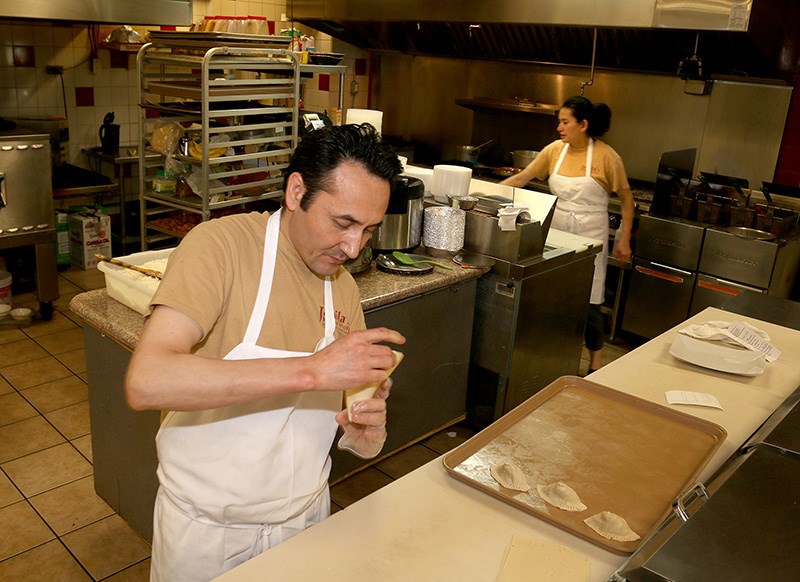A Coquitlam restaurateur says he’s feeling helpless as he watches news coverage of fellow Afghans desperately trying to get out of the country while a new Taliban regime takes charge.
Malik Malikzada and his wife, Jamila, experienced similar desperation almost 30 years ago when they fled Kabul for Pakistan amidst a civil war. Then, their urgency was driven by fear neither the incumbent Islamic government nor the various mujahideen rebel armies looking to seize control — including the Taliban that enforce a strict interpretation of Islamic law — would recognize their own Ismaili minority.
This time, Malikzada said, a whole new generation of young Afghans is dreading what Taliban rule might mean for the freedoms like access to education and job opportunities for women they’ve been able to acquire since the United States and its NATO allies removed the Taliban militants from power in 2001.
“They’ve lived in a situation where they’ve had access to technology, medical services and education, and they’ve heard from the past that the Taliban have a harsh system,” said Malikzada, who runs Jamila’s Kitchen on the Barnet Highway with his wife. “They’re afraid to see what the Taliban is going to bring upon the country.”
Malikzada said both he and Jamila have relatives still in Afghanistan and they’ve been in touch as recently as Sunday. He said a cousin told him aside from the chaos at the airport where news coverage has shown people clambering over security walls to reach the tarmac and clinging to aircraft trying to evacuate foreign citizens, the situation in Kabul is “very calm.” He said members of the minority Ismaili community have been instructed to stay home as much as possible and not panic.
Malikzada said those who are trying to take advantage of the uncertainty by committing crimes or looting are being dealt with immediately and harshly by the incoming Taliban, stoking further the fears about what the future for the country might look like.
“There’s no justice system at the moment,” he said.
Malikzada said his distress has been compounded by a certain sense of inevitability that his homeland was headed this way anyway, despite 20 years of intervention by the West.
“The international community didn’t do its work properly, they didn’t consider the history of Afghanistan,” he said, adding the departure of the United States and its allies from their security role that began several years ago opened the door for the Taliban to reemerge, often with training and expertise they gleaned from foreign countries.
Malikzada said the coming days and weeks will be critical as Afghans try to make sense of their future and the international community responds to the country’s changing situation.
“It is very difficult to watch as an Afghan,” he said. “You cannot disconnect right now, it pops up the moment you open your Facebook page, your email. It’s difficult to know what we can do.”
According to the 2016 census, there are almost 84,000 Afghans living in Canada. Malikzada estimates about 1,200 Afghan families reside in the Tri-Cities.



